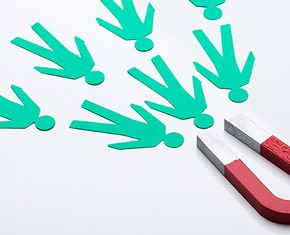The views expressed in our content reflect individual perspectives and do not represent the authoritative views of the Baha'i Faith.
Every parent asks the question “What did you learn in school today?” Even though kids often answer “Nothing,” teachers apply many methods to help children learn what they need to know.
One method teaches by rote, repeating over and again the points we need to absorb until we have them memorized. To learn writing skills, we first learn to pronounce and then print the letters of the alphabet through practice. In math, we learn the times table, committing those sums to memory.
When I was in grammar school, we also had to know and demonstrate cursive writing, now used much less with the advent of typing into cellphones or computers. To show that we had learned our lessons, we often took pop quizzes or an actual test, so the teacher could determine if we had indeed learned the material.
The early skills we learned in the elementary grades built a foundation of learning, creating the knowledge necessary for our minds to expand as we aged. The quizzes and tests identified gaps in our learning, which told the teacher what to focus on in the next lesson. Each lesson became a building block for more complex and deeper learning to take place.
All education is progressive by nature, because our capacity to learn grows as we develop and train our intelligence. You have to learn how to add before you can learn how to multiply, how to subtract before you can divide. Our elementary learning allows us to learn more and do more, and to get better and better at what we eventually choose to focus on in life. The old joke explains it: “How do you get to play at Carnegie Hall? Practice, practice, practice.”
Humanity has had many thousands of years to learn and practice, and our education has allowed us to produce both horrible things and beneficial things. Sadly, though, our expertise at building mass killing machines, such as high-capacity rifles or guided “smart” missles” or nuclear weapons, has placed the human race in a fearful state.
Yet our collective ability to respond to natural disasters and aid the survivors has increased at an admirable rate, especially our sacrificial giving at the individual and collective levels to alleviate suffering.
On the one hand, we take lives, on the other, we save them. By “we” I mean humanity, for we do not all believe that killing is evil, nor that we should exert every effort to help those in need.
The Baha’i teachings explore this strange human dichotomy and its impact on our dream of peace:
… war is destruction while universal peace is construction; war is death while peace is life; war is rapacity and bloodthirstiness while peace is beneficence and humaneness; war is an appurtenance of the world of nature while peace is of the foundation of the religion of God; war is darkness upon darkness while peace is heavenly light; war is the destroyer of the edifice of mankind while peace is the everlasting life of the world of humanity; war is like a devouring wolf while peace is like the angels of heaven; war is the struggle for existence while peace is mutual aid and cooperation among the peoples of the world and the cause of the good pleasure of the True One in the heavenly realm.
There is not one soul whose conscience does not testify that in this day there is no more important matter in the world than that of universal peace. – Abdu’l-Baha, Selections from the Writings of Abdul-Baha, pp. 296-297.
The more we learn to hurt, maim, and kill each other, the better we’ll get at it. The more we learn to cooperate and understand one another, the more peaceful the world will become. Our choice.
Most of us choose the latter—peace, security, and prosperity. How we go about achieving those goals makes all the difference. By most of us, I believe that 99% of the world’s 7.7 billion adults, youth and children want peace rather than war. So how do we get there?
Abdu’l-Baha, based on the teachings of Baha’u’llah, gave very specific guidelines on how we get there:
Note ye how easily, where unity existeth in a given family, the affairs of that family are conducted; what progress the members of that family make, how they prosper in the world. Their concerns are in order, they enjoy comfort and tranquillity, they are secure, their position is assured, they come to be envied by all. Such a family but addeth to its stature and its lasting honor, as day succeedeth day. And if we widen out the sphere of unity a little to include the inhabitants of a village who seek to be loving and united, who associate with and are kind to one another, what great advances they will be seen to make, how secure and protected they will be. Then let us widen out the sphere a little more, let us take the inhabitants of a city, all of them together: if they establish the strongest bonds of unity among themselves, how far they will progress, even in a brief period, and what power they will exert. And if the sphere of unity be still further widened out, that is, if the inhabitants of a whole country develop peaceable hearts, and if with all their hearts and souls they yearn to cooperate with one another and to live in unity, and if they become kind and loving to one another, that country will achieve undying joy and lasting glory. Peace will it have, and plenty, and vast wealth.
Note then: if every clan, tribe, community, every nation, country, territory on earth should come together under the single-hued pavilion of the oneness of mankind, and by the dazzling rays of the Sun of Truth should proclaim the universality of man; if they should cause all nations and all creeds to open wide their arms to one another, establish a World Council, and proceed to bind the members of society one to another by strong mutual ties, what would happen then? There is no doubt whatsoever that the divine Beloved, in all His endearing beauty, and with Him a massive host of heavenly confirmations and human blessings and bestowals, would appear in His full glory before the assemblage of the world. – Ibid., pp. 279-280.
Yes, practice does make perfect. It’s time to practice love, forbearance, kindness, and unity if we want to save ourselves and the world.
















Comments
Sign in or create an account
Continue with Googleor